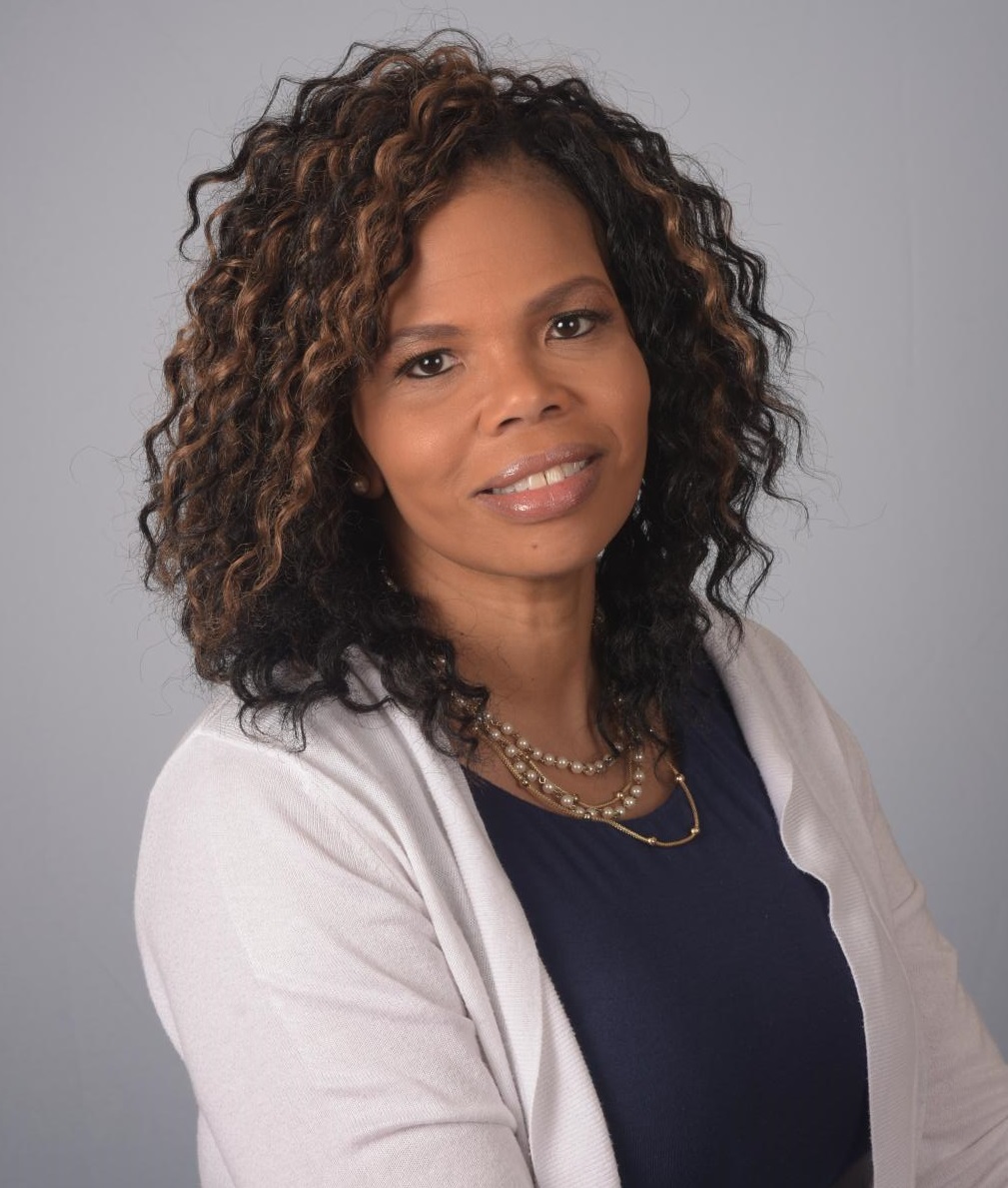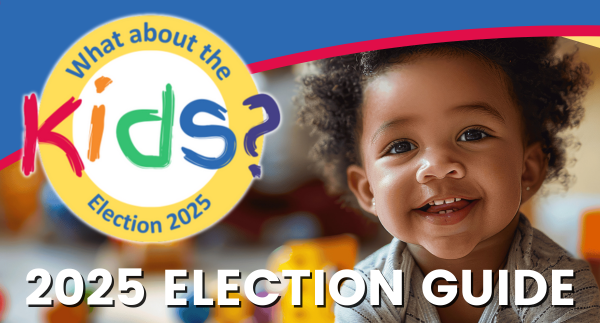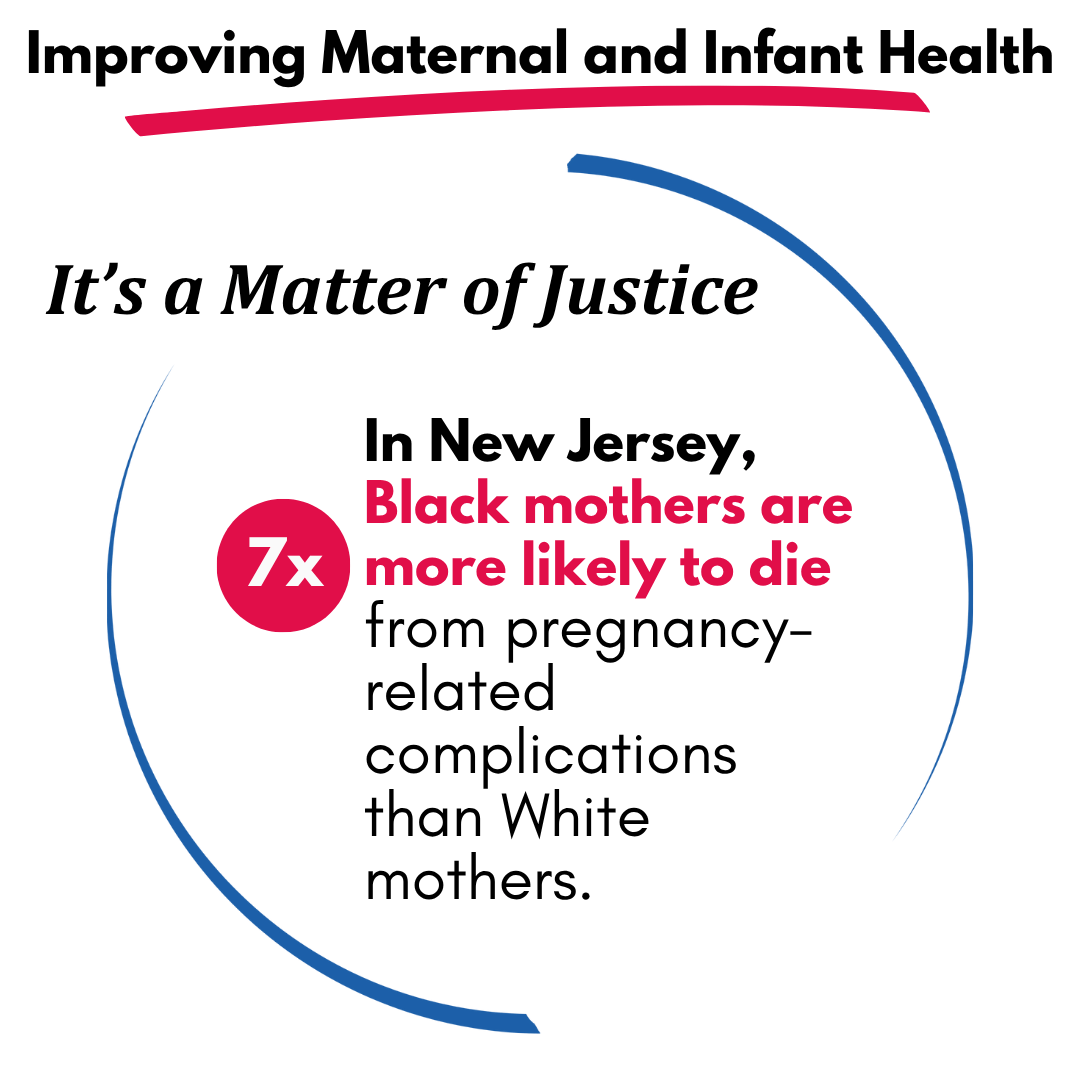Posted on July 3, 2025

Director of Early Childhood Policy and Advocacy
Too many mothers and babies in New Jersey are dying, and it doesn’t have to be this way. Midwifery care is a proven, life-saving solution. But outdated laws, systemic barriers, and a lack of awareness are limiting access to this vital care.
A Forgotten Legacy of Care
For centuries, midwives were the primary providers of childbirth care in the United States. Before hospitals became common, childbirth happened at home with the help of skilled midwives. Many of these midwives were enslaved African women, Indigenous women, and immigrants who passed down knowledge through generations and provided trusted care in their communities.
Known as “granny midwives,” Black women in the South cared for mothers in rural and low-income communities well into the 1940s.These midwives provided prenatal education, labor support, delivery, and postpartum care at a time when hospitals were not accessible or welcoming to everyone. Their care kept communities alive and mothers safe.

Let's make children and their
families the center of the
2025 Election Campaign.
Starting in the early 1900s, hospitals and male doctors began to take over childbirth care. Public health campaigns and new licensing rules, often shaped by racism and bias, pushed midwives out by calling their work outdated or unsafe, without much proof. As a result, trusted community-led models of maternal care that worked for generations were lost.
Bringing midwives back into the center of maternity care isn’t just a return to tradition. It’s a matter of equity, cultural respect, and saving lives, especially for the families most at risk.

What Exactly Is a Midwife?
A midwife is a highly trained clinical professional who specializes in healthy pregnancy, labor, birth, and postpartum care. They provide holistic, respectful, and culturally responsive care that centers around patient autonomy, trust, and informed decision-making.
Midwives are different from other birth workers:
- Midwives are not doulas – Doulas offer emotional and physical support, not clinical care.
- Midwives are not OB-GYNs – OBs are trained as surgeons to manage high-risk pregnancies and complications.
- Midwives are essential to a modern, integrated maternity care system that meets the needs of diverse families.
The Research is Clear: Midwives Save Lives
Research overwhelmingly shows that midwife-led care improves outcomes for mothers and babies; especially for Black families, who face the highest rates of maternal and infant mortality in New Jersey.
- States with stronger midwifery integration have:
- Lower rates of neonatal death, preterm birth, and low birthweight
- Better outcomes for Black mothers and infants
- Midwife-led continuity of care reduces fetal loss and neonatal death by up to 16%
- Countries with strong midwifery systems (e.g., the UK, Norway) have significantly lower neonatal mortality than the U.S.
- Midwifery practices—like delayed cord clamping, early breastfeeding, and reduced unnecessary interventions—support healthier newborn transitions
Barriers in New Jersey
Considering the benefits of midwives, New Jersey makes it hard for them to practice. The result? Families lose access to choices and the care they need.
Some of the biggest barriers:
- Restrictive laws prevent midwives from practicing independently
- Midwives face burnout and a lack of supportive infrastructure
- There is a shortage of racially and culturally diverse midwives
- Aspiring midwives lack accessible training and mentorship pathways
- Consumers, especially in underserved areas, lack access to midwifery care
New Jersey recognizes three midwifery credentials:
- Certified Nurse Midwife (CNM) – Must be an RN and complete graduate midwifery training
- Certified Midwife (CM) – Similar to CNM but with a non-nursing health science background
- Certified Professional Midwife (CPM) – Trained through accredited programs or apprenticeship, often focused on home and birth center deliveries
Only CNMs and CMs can work in hospitals, but under the supervision of doctors. CPMs often cannot get paid or included in care networks, even though they are qualified. These limits make it harder for families to access the care they need.
Policy Solutions We Need Now
To improve maternal and infant health outcomes, New Jersey must:
- Grant full practice authority to CNMs and CMs
- Integrate and reimburse CPMs fairly
- Establish an independent midwifery licensing board
- Improve home-to-hospital transfer protocols
- Expand pathways and scholarships for future midwives, especially midwives of color
- Raise public awareness about the midwifery model of care
It’s a Matter of Justice
- Black mothers in New Jersey are seven times more likely to die from pregnancy-related causes than white mothers
- Black infants are more than twice as likely to die before their first birthday
These outcomes are not inevitable. They are the result of systemic failures that we have the power to change. Expanding access to midwifery care is a critical, evidence-based solution.
What to Ask Candidates This Election Year
This election year, ask every candidate for governor:
- What will you do to expand access to midwives?
- How will you improve maternal and infant health for all families in New Jersey?
The future of maternal and infant health depends on bold, inclusive leadership, and midwifery must be part of the solution.

